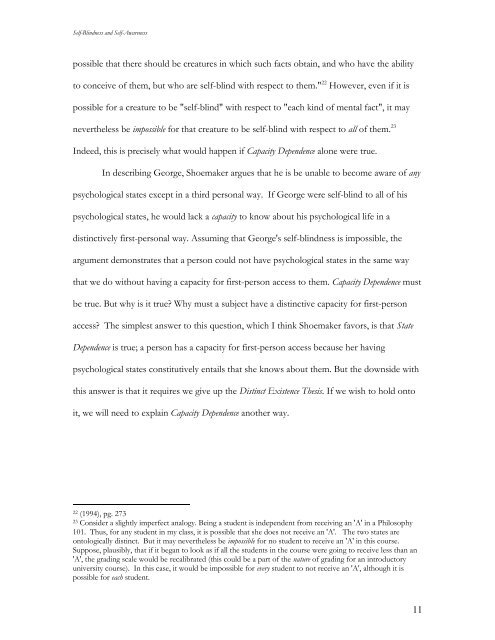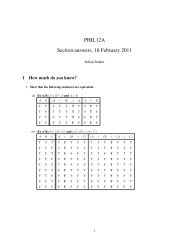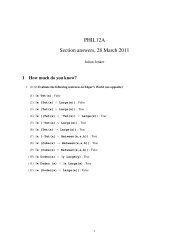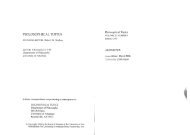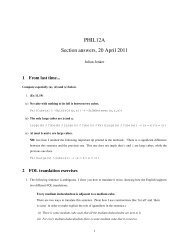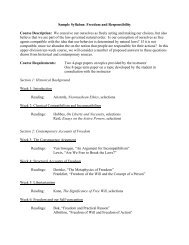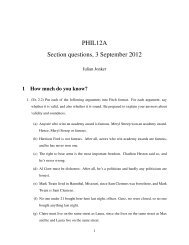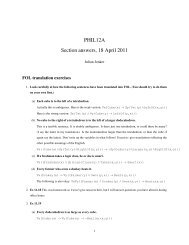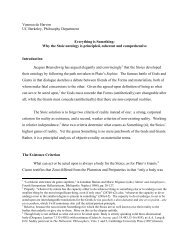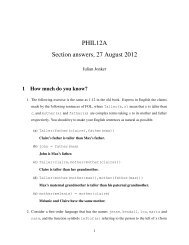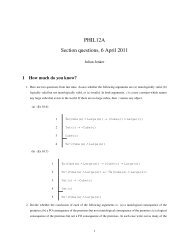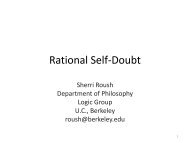SELF-BLINDNESS AND SELF-AWARENESS - Philosophy
SELF-BLINDNESS AND SELF-AWARENESS - Philosophy
SELF-BLINDNESS AND SELF-AWARENESS - Philosophy
You also want an ePaper? Increase the reach of your titles
YUMPU automatically turns print PDFs into web optimized ePapers that Google loves.
Self-Blindness and Self-Awarenesspossible that there should be creatures in which such facts obtain, and who have the abilityto conceive of them, but who are self-blind with respect to them." 22 However, even if it ispossible for a creature to be "self-blind" with respect to "each kind of mental fact", it maynevertheless be impossible for that creature to be self-blind with respect to all of them. 23Indeed, this is precisely what would happen if Capacity Dependence alone were true.In describing George, Shoemaker argues that he is be unable to become aware of anypsychological states except in a third personal way. If George were self-blind to all of hispsychological states, he would lack a capacity to know about his psychological life in adistinctively first-personal way. Assuming that George's self-blindness is impossible, theargument demonstrates that a person could not have psychological states in the same waythat we do without having a capacity for first-person access to them. Capacity Dependence mustbe true. But why is it true? Why must a subject have a distinctive capacity for first-personaccess? The simplest answer to this question, which I think Shoemaker favors, is that StateDependence is true; a person has a capacity for first-person access because her havingpsychological states constitutively entails that she knows about them. But the downside withthis answer is that it requires we give up the Distinct Existence Thesis. If we wish to hold ontoit, we will need to explain Capacity Dependence another way.22 (1994), pg. 27323 Consider a slightly imperfect analogy. Being a student is independent from receiving an 'A' in a <strong>Philosophy</strong>101. Thus, for any student in my class, it is possible that she does not receive an 'A'. The two states areontologically distinct. But it may nevertheless be impossible for no student to receive an 'A' in this course.Suppose, plausibly, that if it began to look as if all the students in the course were going to receive less than an'A', the grading scale would be recalibrated (this could be a part of the nature of grading for an introductoryuniversity course). In this case, it would be impossible for every student to not receive an 'A', although it ispossible for each student.11


